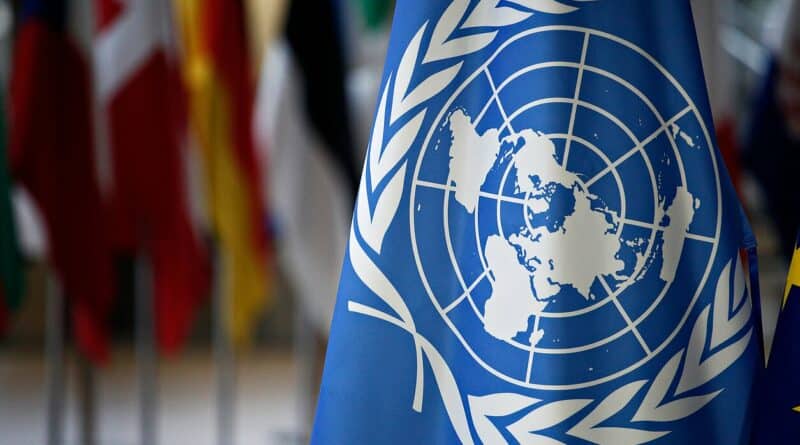For 4 years, Kazakhstan has complied only with 6.8% of UN recommendations
Following the Coalition of Kazakh human rights defenders, which prepared the report stating that Kazakhstan does not comply with UN recommendations, the Kazakh International Bureau for Human Rights and observance of legality (KIBHR) also raised a question about the inaction of state bodies of the Republic.
ACCA had the opportunity to read the report prepared by the KIBHR for the third cycle of the Universal Periodic Review (UPR). The UPR is a part of the structure of the Human Rights Council and provides an opportunity for each country to inform about its measures in order to improve the human rights situation, as well as fulfill its obligations in this area.
As noted in the KIBHR report, the second UPR cycle took place in 2014. Then Kazakhstan was proposed 198 recommendations from UN experts on improving human rights in the Republic. In 2015, official representatives of Kazakhstan stated that after consideration, the Republic accepts 147 of the proposed recommendations and 51 recommendations are not accepted at all.
Four years later, Kazakh human rights activists state that only 10 of 147 recommendations, accepted by Kazakhstan, have been fully implemented (6.8% of the total). At the same time, 103 recommendations are under implementation. Kazakhstan has not yet implemented 33 recommendations.
“Kazakhstan has not acceded to or ratified the Second Optional Protocol to the International pact on civil and political rights aimed at the abolition of the death penalty (retaining the death penalty in the Constitution and Criminal law, despite the recommendations of Sweden, Portugal, Germany, Slovenia, Spain, which the state rejected), Optional Protocol to the International pact on economic, social and cultural rights, Convention on the status of stateless persons, Convention on the reduction of statelessness, International Convention on the protection of the rights of all migrant workers and members of their families, the Optional Protocol to the Convention on the rights of child on a communications procedure, the Optional Protocol to the UN Convention on the rights of people with disabilities and the Rome Statute of the International Criminal Court. We urge the state to ratify these international human rights treaties,” the KIBHR report says.
The human rights organization also states that the authorities of Kazakhstan, again despite the urgent UN recommendations, still have not done anything to give their citizens the right to participate in the governance of the country and to fair free elections. The report notes that the country’s political opposition is not represented either in parliament or in local representative bodies of power. It also does not have effective access to nationwide media.
“For the entire time of observation, neither local independent observers, nor OSCE and European Union election observation missions recognized either the presidential elections of the Republic of Kazakhstan (including those held in June 2019), or parliamentary and local elections in accordance with international free and fair standards elections,” the KIBHR reminded. “We urge the state to bring national election legislation, including legislation on political parties and the media, as well as law enforcement practices into accord with international standards, including the OSCE Copenhagen Document of 1990.”
Another area of law, in which the Kazakh authorities ignored all the recommendations of the international community, is the right to freedom of association, including the organization of trade unions. Human rights activists note that in the past few years, Kazakh courts have actively applied additional punishment in the form of deprivation of the right to participate in the activities of public associations or in general public activities for three and more years.
“Pressure continues on independent trade unions, including due to the adoption of new Trade Union Law in 2014, which caused serious criticism from the International labor organization and the International Federation of free trade unions,” the KIBHR report says. “The application of this law led to the liquidation of many independent trade unions, including the Confederation of independent trade unions of Kazakhstan and the persecution of its president Larisa Kharkova and other activists. We urge the state to bring legislation and enforcement practice in the field of ensuring the right to freedom of association into accord with international standards of human rights and freedoms, establishing the human right to create or join associations, unions, associations, including informal ones, as well as revise legislation on trade unions and bring it into accord with international standards, recommendations of the International labor organization and international trade unions.”
Human rights activists are also concerned about the fact that Kazakhstan has completely rejected the recommendations of Slovenia, Costa Rica, Switzerland, Germany and Mexico regarding the rights of citizens to freely hold peaceful assemblies.
“The authorities make extensive use of “preventive detentions” and administrative arrests of organizers and potential participants in peaceful assemblies even before they take place,” human rights activists emphasize. “In May-June 2019, in particular, after the election of the President of the Republic of Kazakhstan, more than 4000 participants in peaceful protests were detained and more than a thousand were convicted, which the UN High Commissioner noted in her speech at the opening of 42nd session of the UN Human Rights Council.”
According to the data provided in the report, the authorities of Kazakhstan also rejected the recommendations of the Netherlands, the USA, Korea, Germany and Canada on issues of religious activity and religious associations.
“The Law of the Republic of Kazakhstan on religious activity and religious associations and a number of by-laws issued on its basis are aimed at tightly regulating religious activity, violate the right of everyone to have and disseminate religious and other beliefs and act in accordance with them, violate the constitutional principle of separation religious associations from the state regarding disproportionate interference of the state in the affairs of religious associations, violate the right to freedom of association and freedom of expression, impose undue restrictions on the dissemination of religious beliefs, missionary work, etc. The recommendations of the UN Human Rights Committee, experts of the Bureau for Democratic Institutions and Human Rights of the Organization for Security and Cooperation in Europe, the UN Special Rapporteur on freedom of religion and belief, were not accepted by the authorities of Kazakhstan,” the KIBHR report summarizes.
Recall, the Coalition of Kazakh human rights defenders also prepared its report for the 34th UN universal session on human rights. According to their findings, drug users, HIV-positive people, the LGBT community and people with disabilities in Kazakhstan are discriminated against both at the legislative level and in practice. In addition, it follows from the report that the situation with civil and political rights in Kazakhstan is still in a deplorable state.




